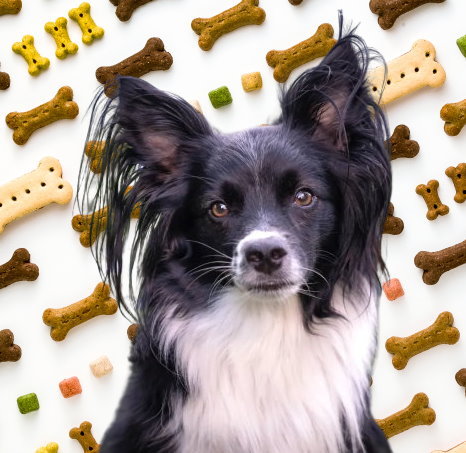Welcome to Dog Training Newbies !
Welcome to Dog Training Newbies !

Bringing home a Papillon puppy is an exciting and rewarding experience. These small, intelligent, and energetic dogs are known for their butterfly-like ears and lively personalities. To ensure your Papillon grows up to be a well-behaved and socialized adult, it is essential to start their training and socialization early. In this article, we will explore valuable tips for raising a Papillon puppy, focusing on training techniques, socialization strategies, and the importance of consistency and positive reinforcement.
START EARLY: BASIC TRAINING
Begin training your Papillon puppy as soon as you bring them home. Establishing a routine and teaching basic commands such as "sit," "stay," and "come" lays a solid foundation for their future training. Use positive reinforcement techniques, such as treats and praise, to reward desired behaviors. Papillons are intelligent and eager to please, making them quick learners. Keep training sessions short and enjoyable to maintain their focus and enthusiasm.
SOCIALIZATION: EXPOSE TO NEW EXPERIENCES
Early socialization is crucial for Papillon puppies to develop into well-rounded and confident dogs. Introduce them to a variety of environments, people, and other animals in a positive and controlled manner. Expose them to different sounds, sights, and experiences to help them become accustomed to various stimuli. Puppy classes and playdates with other friendly dogs can provide valuable socialization opportunities. Gradually increase the complexity of social interactions to build their confidence and ensure they grow up to be sociable adults.
POSITIVE REINFORCEMENT: CONSISTENCY AND REWARDS
Positive reinforcement is a highly effective training method for Papillon puppies. They respond well to praise, treats, and other rewards. Consistency is key when using positive reinforcement. Clearly communicate your expectations and reward your puppy promptly when they exhibit the desired behavior. Avoid punishment or harsh training methods, as this can lead to fear or anxiety in your Papillon. Instead, focus on positive reinforcement to encourage good behavior and build a strong bond based on trust and respect.
CRATE TRAINING: CREATING A SAFE SPACE
Crate training is beneficial for both the puppy and the owner. It provides a safe and comfortable space for your Papillon and aids in housebreaking and preventing destructive behavior. Introduce the crate gradually, making it a positive and inviting place. Use treats, toys, and soft bedding to make it a cozy retreat for your puppy. Avoid using the crate as a form of punishment and ensure your Papillon has plenty of exercise and mental stimulation outside of the crate.
LEASH TRAINING: WALKING WITH CONFIDENCE
Leash training is an essential skill for any dog, including Papillons. Start leash training early to help your puppy become comfortable walking on a leash. Use a lightweight and properly fitted harness or collar to ensure their safety and comfort. Begin in a quiet and familiar environment, gradually introducing them to busier areas. Reward your puppy for walking nicely on the leash and remember to be patient and consistent throughout the training process.


MENTAL STIMULATION: ENGAGING ACTIVITIES
Papillons are intelligent dogs that thrive on mental stimulation. Provide them with engaging activities such as puzzle toys, interactive games, and training sessions to keep their minds active and prevent boredom. Mental stimulation helps prevent unwanted behaviors that may arise from boredom or excess energy. Incorporate short training sessions into their daily routine to challenge their intelligence and strengthen the bond between you and your Papillon.
ONGOING TRAINING AND SOCIALIZATION
Training and socialization should be ongoing throughout your Papillon's life. As they grow, continue to reinforce the basic commands and introduce new challenges to keep their minds sharp. Participating in advanced training classes or activities such as agility or obedience competitions can provide additional mental and physical stimulation. Regular socialization with other dogs and people helps maintain their sociability and prevents the development of fear or aggression.
Raising a Papillon puppy requires patience, consistency, and a positive approach to training and socialization. Start early, establish a routine, and use positive reinforcement techniques to teach basic commands and desired behaviors. Focus on socializing your puppy to various environments, people, and animals to ensure they grow into well-adjusted adults. Remember to provide mental stimulation and engage in ongoing training to keep their minds active. With proper training and socialization, your Papillon will become a well-behaved and cherished member of your family for years to come.